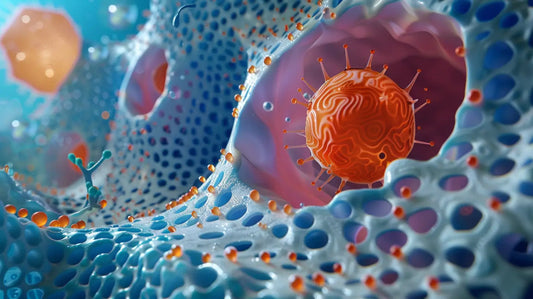How Long Does Hydrogen Last in the Water
Updated
John Smith
Staff Writer
Our Commitment to Accuracy and Objectivity
Ocemida is committed to delivering reliable and unbiased information. Our editorial team, comprised of experienced editors and medical experts, meticulously reviews every article and guide to ensure the content is accurate, up-to-date, and free from bias.
Rigorous Fact-Checking Process
To uphold the highest standards of accuracy, we adhere to the following fact-checking guidelines:
Trusted Sources: We only cite reputable sources, such as peer-reviewed journals, government reports, academic and medical associations, and interviews with credentialed healthcare professionals.
Evidence-Based: All scientific claims and data are supported by at least one credible source. Each article includes a comprehensive bibliography with full citations and links to the original sources.
Internal Linking: While we may include internal links to other relevant Ocemida pages for better navigation, these links are never used as primary sources for scientific information.
Expert Review: A member of our medical and scientific expert team provides a final review of the content and cited sources for all articles and product reviews related to medical and health topics.
By following these rigorous standards, Ocemida strives to provide readers with reliable and informative content.
Share with a friend
Key Takeaways
🟢 Hydrogen water must be consumed quickly - within 20 minutes of opening a pressurized container for maximum benefits, or within a few hours at most.
🟢 Proper storage is crucial: use airtight containers made of glass, Tritan, or aluminum, and keep in a cool, dark place (refrigerator is ideal).
🟢 Temperature and light significantly affect hydrogen retention - cold temperatures preserve hydrogen content while heat and UV light cause it to dissipate faster.
🟢 In sealed containers without air gaps, hydrogen water can maintain potency for up to 2 days, but once opened, the hydrogen concentration rapidly decreases.
🟢 The "Psst" sound when opening (like a soda can) is the only indicator that hydrogen gas is still present in the water - if there's no sound, it's time for a new batch.
Factors Affecting Hydrogen Retention
- Temperature: Higher temperatures increase the rate of hydrogen gas escaping the water.
- Light Exposure: UV light can break down H2 molecules, decreasing its concentration.
- Container Type: Glass, Tritan and aluminum are the best materials for preserving hydrogen water due to their non-porous nature. Regular plastic can allow H2 gas to permeate, shortening the water's shelf life.

Ideal Storage Conditions to maximize the lifespan of hydrogen water:
- Store under pressure in airtight containers: This prevents hydrogen gas from escaping. As soon as you open your hydrogen water generator, the pressure will be released and the concentration will start lowering. You need to drink the water in the next 20 minutes for maximum benefits. If you don't open the pressurized container, the hydrogen water will be good for the next 2 days.
- Store in a cool, dark place: A refrigerator is ideal, as lower temperatures slow down the H2 gas dissipation. However do not store the hydrogen generator in the fridge. This option if good only if you transfer the water in a airtight glass bottle and store it in the fridge.
- Choose the right container: Opt for glass or Tritan bottles to minimize hydrogen loss.
Hydrogen Water Lifespan
- Sealed Containers: In a properly sealed glass or aluminum container, without any air gap, hydrogen water can retain its potency for several hours to days, depending on the initial concentration of H2.
- After Opening: Once opened, the hydrogen concentration will rapidly decrease as H2 escapes into the air. It's recommended to consume the water within a few hours for maximum benefit.
Enhancing and Preserving Benefits
- Use cold water: Use cold water from your fridge as cold water stores more hydrogen and keeps it for longer.
- Use High-Quality Containers: Invest in glass or Tritan bottles designed for storing hydrogen water.
- Consume Quickly After Opening: Drink your hydrogen water soon after opening to enjoy its full potential.
In Conclusion
Hydrogen water can be a valuable addition to a healthy lifestyle, but understanding its storage and consumption is key to maximizing its potential benefits. By following these guidelines, you can ensure you're getting the most out of your hydrogen water. Remember, freshness is crucial when it comes to enjoying the full effects of this unique beverage.
FAQ
Q: What is hydrogen water?
A: Hydrogen water is simply water enriched with molecular hydrogen gas (H2).
Q: How long does hydrogen water last?
A: Unopened, properly stored hydrogen water can last from 8 hours to 2 days. Once opened, consume within a few hours for best results.
Q: How can you tell if hydrogen water has lost its effectiveness?
A: The "Pssst" sound typical for opening a can of soda is the only indicator that there is still hydrogen gas in the water. If not, generate yourself a new batch.
Table of Contents










































